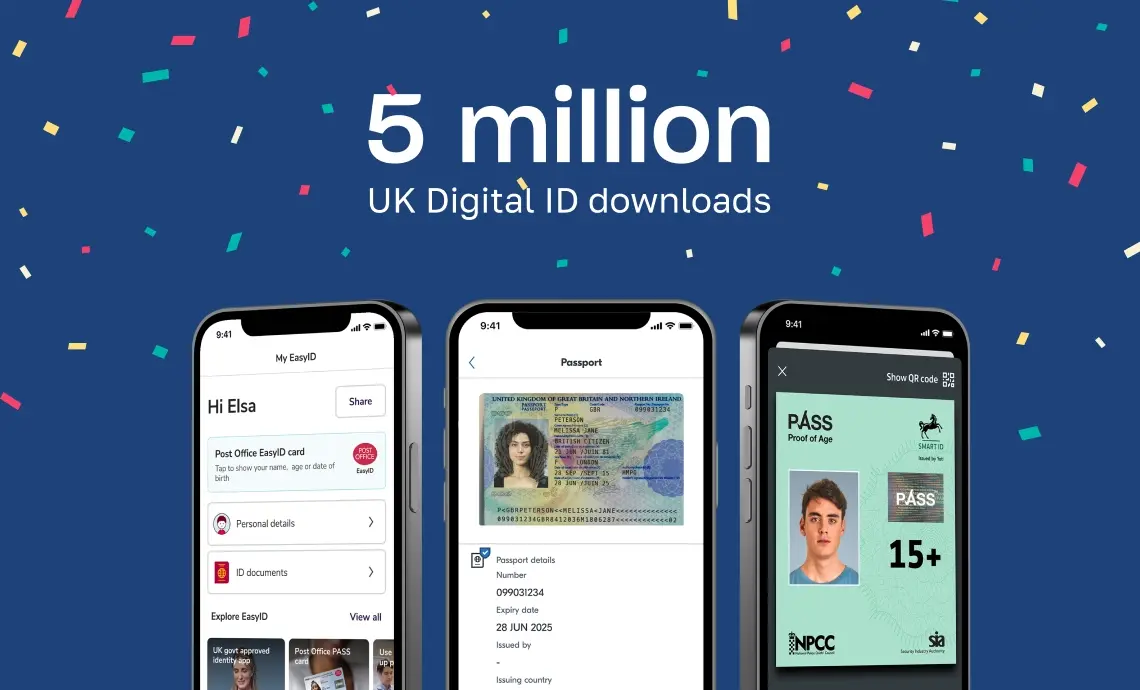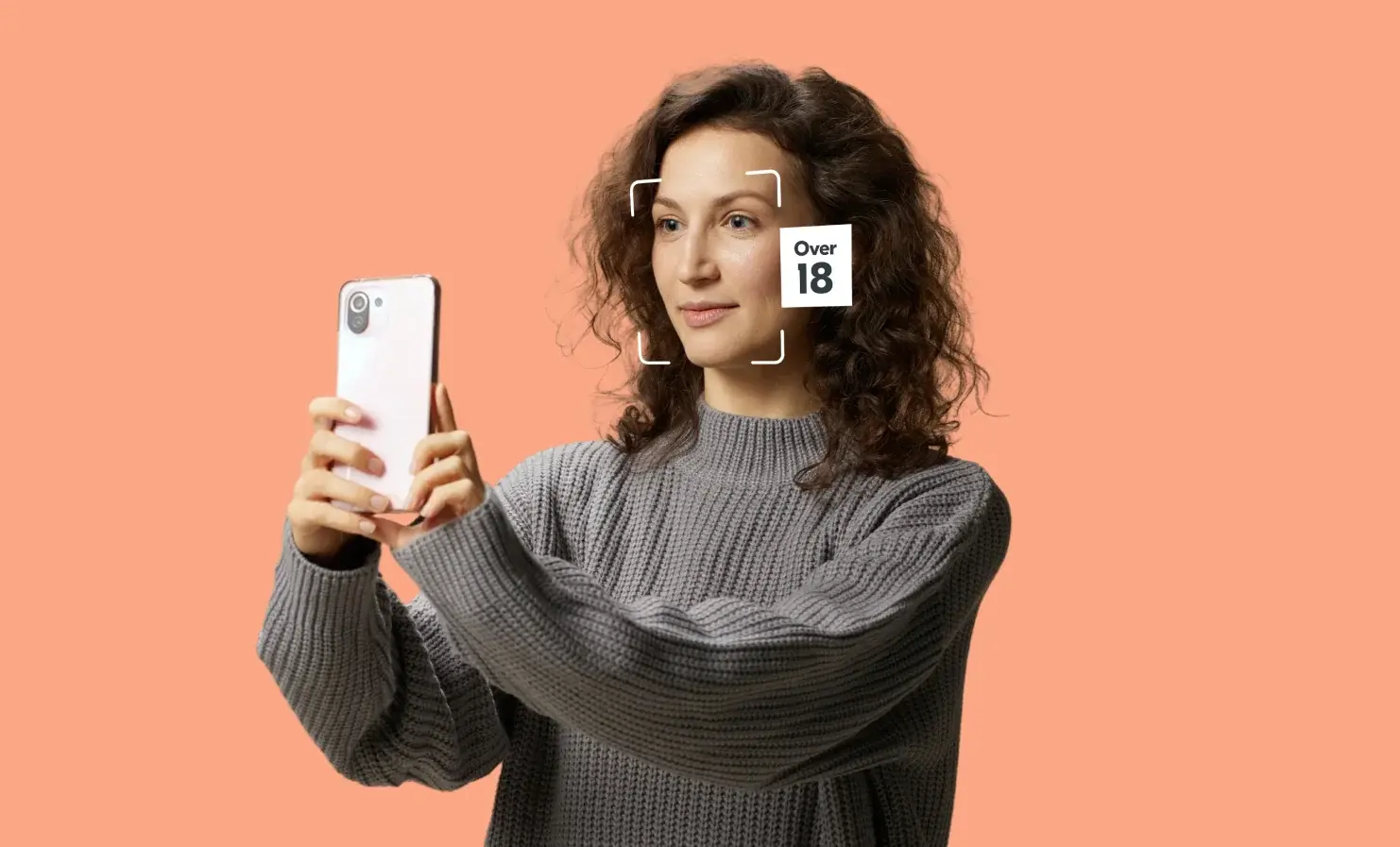
Today, we’re excited to announce that five million of you in the UK have downloaded a Digital ID.
We want to say a big thank you to everyone who has chosen one of our Digital ID apps. It’s a clear sign that people want an easier and more private way to prove who they are.
Your Digital ID: your choice
We have always believed in choice. The choice to use a digital ID and a choice in which digital ID to use. It’s one of the main reasons we, along with Post Office and Lloyds Bank, created Digital ID Connect – the UK’s biggest network of Digital IDs.
The network consists of three Digital ID apps – Yoti ID, Post Office EasyID and Lloyds Bank Smart ID. Each app has the same core functionality. But, they all have a tailored user experience to align with their individual brand values.
We don’t believe any digital ID should be compulsory though. There should always be non-digital options for those who prefer to prove who they are using physical documents.
Built with privacy throughout
Our Digital IDs are all built with the highest privacy and security. They give you control to share less information. At first this might seem at odds with how an identity solution should work. But our apps let you select and share specific details. So if you only need to show your photo and age to buy an age-restricted item, you can show these details and nothing else.
We’ve also taken an innovative approach to safeguarding personal information. Instead of storing your data as a single record in one big centralised database, we separate and store each piece individually. Imagine each piece of data locked in its own safe, accessible only to you.
Making everyday tasks easier
Digital IDs can make many aspects of everyday life easier, safer and more private. This includes banking, employment checks, buying age-restricted items and even moving house.
Our Digital IDs are approved by the Home Office for proof of age. They are government approved for proof of identity, for right to work, right to rent and criminal record checks. And they can be used for collecting parcels and swapping information with other people.
With our secure, reusable Digital IDs, you have a much easier and quicker way to prove who you are. Filling in long forms, scanning in your passport and remembering passwords will soon be a distant memory.
Digital ID isn’t the future, it’s now
Whether you’ve been with us since the beginning or you’re new to the Digital ID world, thank you for choosing us. We can’t wait for what’s next!




